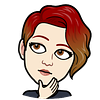You need to sign in or sign up before continuing.
Take a photo of a barcode or cover
dark
mysterious
tense
medium-paced
Plot or Character Driven:
A mix
Strong character development:
No
Flaws of characters a main focus:
No
This is a wild ride and in the vein of the Handmaid's Tale. A dystopian future where when are by law less than men. Unable to have a job, be considered adults, or vote. Women ban together for support, invent a women only language, secretly kill men, and serve their subservient roles. Clearly written by a woman that lived through the 70s and dealt with men disregarding women's ideas.
Also linguistics run the government and are a ruling class because they learn alien languages and handle trade and expansion negotiations. Also the government gives psychedelics to babies to see if they can learn non humanoid languages and stop combusting when meeting aliens.
Also linguistics run the government and are a ruling class because they learn alien languages and handle trade and expansion negotiations. Also the government gives psychedelics to babies to see if they can learn non humanoid languages and stop combusting when meeting aliens.
Patriarchal oppression in the extreme just does not feel good to speculate right now in 2025 :(
challenging
dark
reflective
medium-paced
Plot or Character Driven:
Character
Strong character development:
Yes
Loveable characters:
Yes
Diverse cast of characters:
Yes
Flaws of characters a main focus:
Yes
dark
reflective
fast-paced
Plot or Character Driven:
Plot
Strong character development:
No
Loveable characters:
No
Diverse cast of characters:
No
Flaws of characters a main focus:
No
mysterious
tense
Really interesting concept and world building but it felt a little like reading an ad towards the end.
challenging
informative
reflective
slow-paced
Plot or Character Driven:
Character
Strong character development:
Complicated
Loveable characters:
Complicated
Diverse cast of characters:
No
Flaws of characters a main focus:
Yes
dark
funny
hopeful
medium-paced
Plot or Character Driven:
Plot
Strong character development:
Yes
Loveable characters:
Complicated
Diverse cast of characters:
Complicated
Flaws of characters a main focus:
Complicated
mysterious
slow-paced
Plot or Character Driven:
Plot
Strong character development:
No
Diverse cast of characters:
No
4,5 ⭐️
Este libro es una distopía bastante aterradora que propone un mundo donde los derechos de las mujeres son suprimidos y pasan a depender 100% de los hombres, como si fuesen menores de edad. Es el año 2.200, la humanidad se ha expandido en el universo y ser lingüista pasa a ser la profesión más importante del mundo, ya que son los que tienen el poder de comunicarse con las razas alienígenas para establecer acuerdos y transacciones comerciales. Son solo 13 familias en el mundo las que ostentan esta aptitud profesional y las mujeres de estos grupos pueden sentirse privilegiadas, ya que son intérpretes interplanetarias y por lo tanto, indispensables. Pero, si bien podría parecer que se ha normalizado esta situación de subyugación femenina, las mujeres han ido creando su propio lenguaje y a través de él, empoderándose.
Me ha gustado muchísimo la propuesta de la autora, donde las palabras tienen un poder transformador de la realidad, que llevan a una identidad compartida y con eso, a crear comunidad. El camino que acompaña este objetivo es duro y la visión de los hombres hacia las mujeres da muchísima rabia, así como el trato hacia los niños y los tejemanejes de un Gobierno que no quiere depender de las casas lingüistas para la diplomacia con los aliens e inicia su propio programa para entrar en competencia.
También he disfrutado del estilo de la autora, si bien al principio me costó enganchar por los numerosos personajes y los saltos temporales, y destaco de manera especial la construcción de personajes.
Una lectura muy recomendable a la que sólo le objeto que me dejó algunos frentes abiertos. Pero, claro, después me enteré de que es una trilogía.
Este libro es una distopía bastante aterradora que propone un mundo donde los derechos de las mujeres son suprimidos y pasan a depender 100% de los hombres, como si fuesen menores de edad. Es el año 2.200, la humanidad se ha expandido en el universo y ser lingüista pasa a ser la profesión más importante del mundo, ya que son los que tienen el poder de comunicarse con las razas alienígenas para establecer acuerdos y transacciones comerciales. Son solo 13 familias en el mundo las que ostentan esta aptitud profesional y las mujeres de estos grupos pueden sentirse privilegiadas, ya que son intérpretes interplanetarias y por lo tanto, indispensables. Pero, si bien podría parecer que se ha normalizado esta situación de subyugación femenina, las mujeres han ido creando su propio lenguaje y a través de él, empoderándose.
Me ha gustado muchísimo la propuesta de la autora, donde las palabras tienen un poder transformador de la realidad, que llevan a una identidad compartida y con eso, a crear comunidad. El camino que acompaña este objetivo es duro y la visión de los hombres hacia las mujeres da muchísima rabia, así como el trato hacia los niños y los tejemanejes de un Gobierno que no quiere depender de las casas lingüistas para la diplomacia con los aliens e inicia su propio programa para entrar en competencia.
También he disfrutado del estilo de la autora, si bien al principio me costó enganchar por los numerosos personajes y los saltos temporales, y destaco de manera especial la construcción de personajes.
Una lectura muy recomendable a la que sólo le objeto que me dejó algunos frentes abiertos. Pero, claro, después me enteré de que es una trilogía.
I first bought a copy of this book around the time that my poetry collection A History of the Cetacean American Diaspora placed second in the 2017 Elgin Awards, an annual award bestowed on books of poetry by the Science Fiction and Fantasy Poetry Association (SFPA). The Elgin Awards are named in honor of author Suzette Haden Elgin, who founded the SFPA in 1978. Although I already knew some things about Elgin at the time, I wanted to learn more about her, and so I made it a project to spend some time over the coming months with her most famous work, the 1984 cult classic novel Native Tongue.
Of all other books, Native Tongue probably gets compared most often to Margaret Atwood's The Handmaid's Tale, which came out only one year later, in 1985: both novels imagine a dystopian future in which women have been stripped of their rights and must revert to being treated as chattel by men. Feminist science fiction is not the only subgenre of science fiction Elgin pioneered in Native Tongue, though: Elgin also blazed a trail in how she envisioned the expanded role linguists might play in future civilizations, as the need for humans to communicate effectively with extraterrestrials becomes a reality. It might be argued that without Elgin's Native Tongue, we would not have, say, Ted Chiang's "Story of Your Life," the linguist-centering 1998 short story that inspired the acclaimed movie Arrival. Elgin's fable of women furtively working together to invent a new language that will bring about their liberation is a tremendous novel of ideas, one that -- like Chiang's story, a decade later -- explores the implications of the Sapir-Whorf hypothesis in a dizzyingly original way.
And if you're worried that being heavy on ideas might make Native Tongue dull, you can rest easy. Elgin's characterizations are lively, and the book is stuffed so full of dramatic incident -- murder, kidnapping, conspiracy, nefarious government men doing the creepy things nefarious government men do -- that it actually borders on feeling pulpy. I admit I was initially a bit concerned that this might be a simplistic novel of moral outrage, focused on the obvious conflict between a righteous group "A" and a vicious group "B," but it turns out that Elgin's realistically complex world contains factions within factions: women opposing men, populists of all genders opposing an intellectual elite class, elites slyly jockeying for power with and/or outright backstabbing other elites, alliances and friendships being struck across faction lines, etc., etc. -- no one here is wholly innocent. In this, Native Tongue somewhat reminded me of another recent read I enjoyed more than I first expected to -- William Browning Spencer's Zod Wallop, which similarly blends authorial loftiness of mind with purely pleasurable plottiness.
Of all other books, Native Tongue probably gets compared most often to Margaret Atwood's The Handmaid's Tale, which came out only one year later, in 1985: both novels imagine a dystopian future in which women have been stripped of their rights and must revert to being treated as chattel by men. Feminist science fiction is not the only subgenre of science fiction Elgin pioneered in Native Tongue, though: Elgin also blazed a trail in how she envisioned the expanded role linguists might play in future civilizations, as the need for humans to communicate effectively with extraterrestrials becomes a reality. It might be argued that without Elgin's Native Tongue, we would not have, say, Ted Chiang's "Story of Your Life," the linguist-centering 1998 short story that inspired the acclaimed movie Arrival. Elgin's fable of women furtively working together to invent a new language that will bring about their liberation is a tremendous novel of ideas, one that -- like Chiang's story, a decade later -- explores the implications of the Sapir-Whorf hypothesis in a dizzyingly original way.
And if you're worried that being heavy on ideas might make Native Tongue dull, you can rest easy. Elgin's characterizations are lively, and the book is stuffed so full of dramatic incident -- murder, kidnapping, conspiracy, nefarious government men doing the creepy things nefarious government men do -- that it actually borders on feeling pulpy. I admit I was initially a bit concerned that this might be a simplistic novel of moral outrage, focused on the obvious conflict between a righteous group "A" and a vicious group "B," but it turns out that Elgin's realistically complex world contains factions within factions: women opposing men, populists of all genders opposing an intellectual elite class, elites slyly jockeying for power with and/or outright backstabbing other elites, alliances and friendships being struck across faction lines, etc., etc. -- no one here is wholly innocent. In this, Native Tongue somewhat reminded me of another recent read I enjoyed more than I first expected to -- William Browning Spencer's Zod Wallop, which similarly blends authorial loftiness of mind with purely pleasurable plottiness.




